
Then vs. Than How to Use Than vs. Then Correctly? Confused Words
Then vs. Than: What's The Difference? Then is an adverb, noun, or adjective that indicates a previous time. Meanwhile, than is a conjunction used when comparing two items or people. Use then in writing or events when there is an element of time. In the English language, then means at that time, at that point, or next.
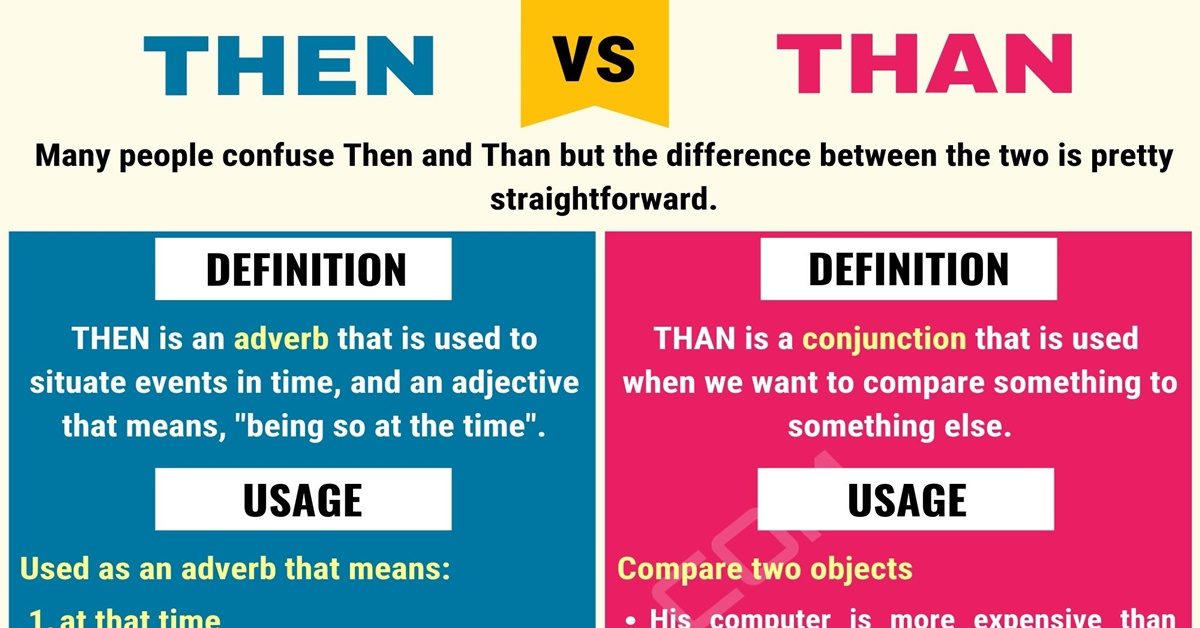
THEN Vs THAN How To Use Than Vs Then Correctly 7 E S L
To keep this pair of words straight, focus on this basic difference: than is used when you're talking about comparisons; then is used when you're talking about something relating to time. When to Use Than Than (for comparisons) is the word to choose in phrases like smaller than, bolder than, and easier said than done.
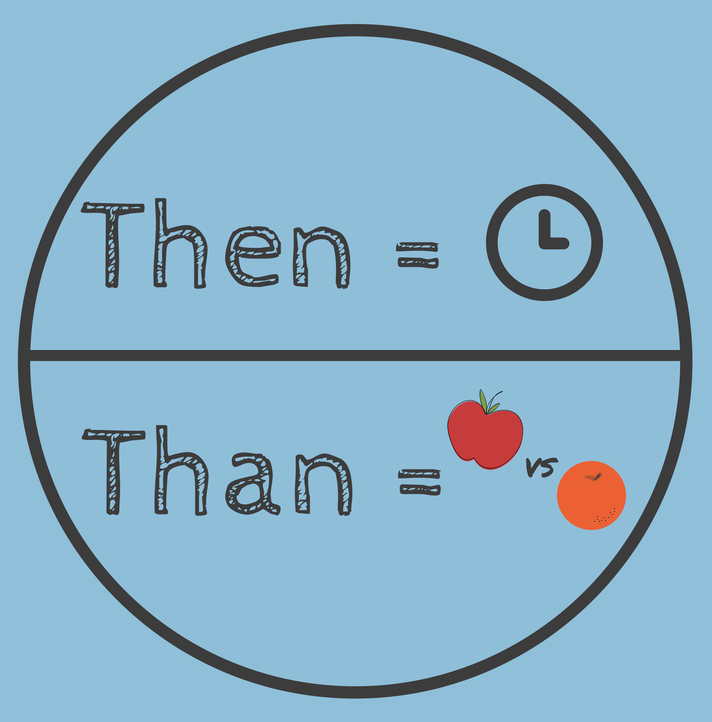
Then Vs Than Learn English With Pocket Passport
Than is used as a conjunction or preposition to compare items and draw attention to differences. It is found in numerous idiomatic expressions (e.g., easier said than done, more than meets the eye, better safe than sorry ). "Than" Examples Than is used after comparative adjectives and adverbs: I ate more than he did.

Then vs Than Vocabulary Builder Learn English YouTube
Than and then sound similar, but they actually have different pronunciations, spellings, and meanings. The "a" in than should sound like the "a" in can, and the "e" in then should sound like the "e" in hen. Many people use these words incorrectly because the vowel in than is often not stressed when said aloud, leading to than.
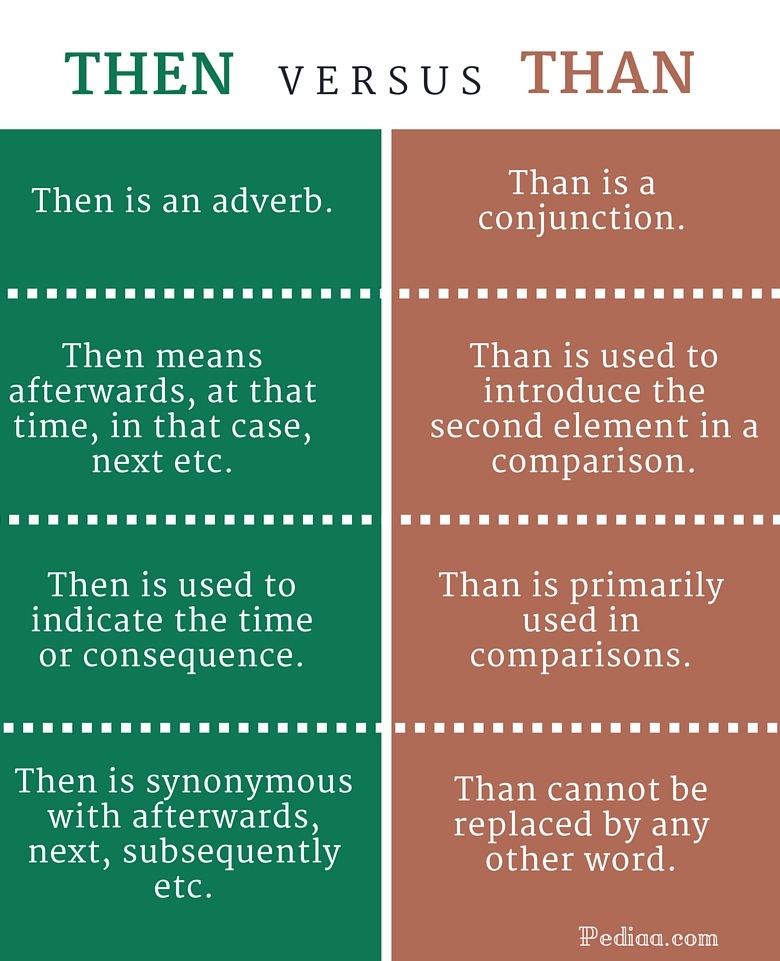
Difference Between Then and Than
What is the Difference Between Than and Then? Than and then are often mixed up in English, partly because they have similar spelling and sound alike. However, the words then and than have very different meanings and uses in language. Then is used in several different ways relating to the element of time.

Then vs. than! Here's a simple graphic to help explain the use of then vs. than to your ESL
Answer: then. Explanation: "Then" suggests a sequence of activities. Answer: than. Explanation: "Than" is used when comparing performance levels. Answer: Now that. Explanation: "Now that" is the correct phrase to indicate since or because a particular thing has happened. Answer: than.
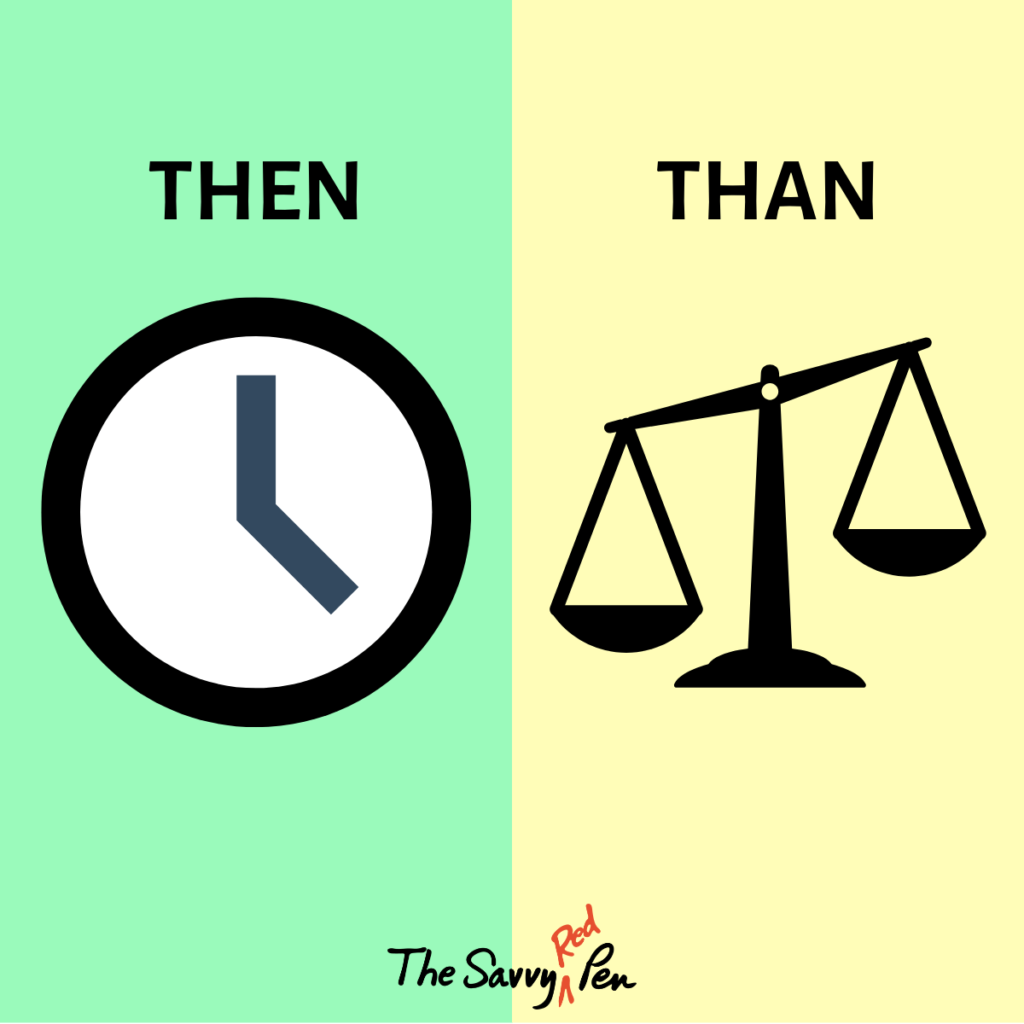
Sorting Out Some Commonly Confused Words The Savvy Red Pen
Then as an adverb. Then is most commonly used as an adverb to place things or events in order. As seen before, then can be used to refer to past or future events. Here are some examples: I think studying for a bit and then grabbing some ice cream would be more rewarding.; The chocolate cake needs to rest for a while and then be eaten.; He went to Peru, then to Germany, and finally returned.
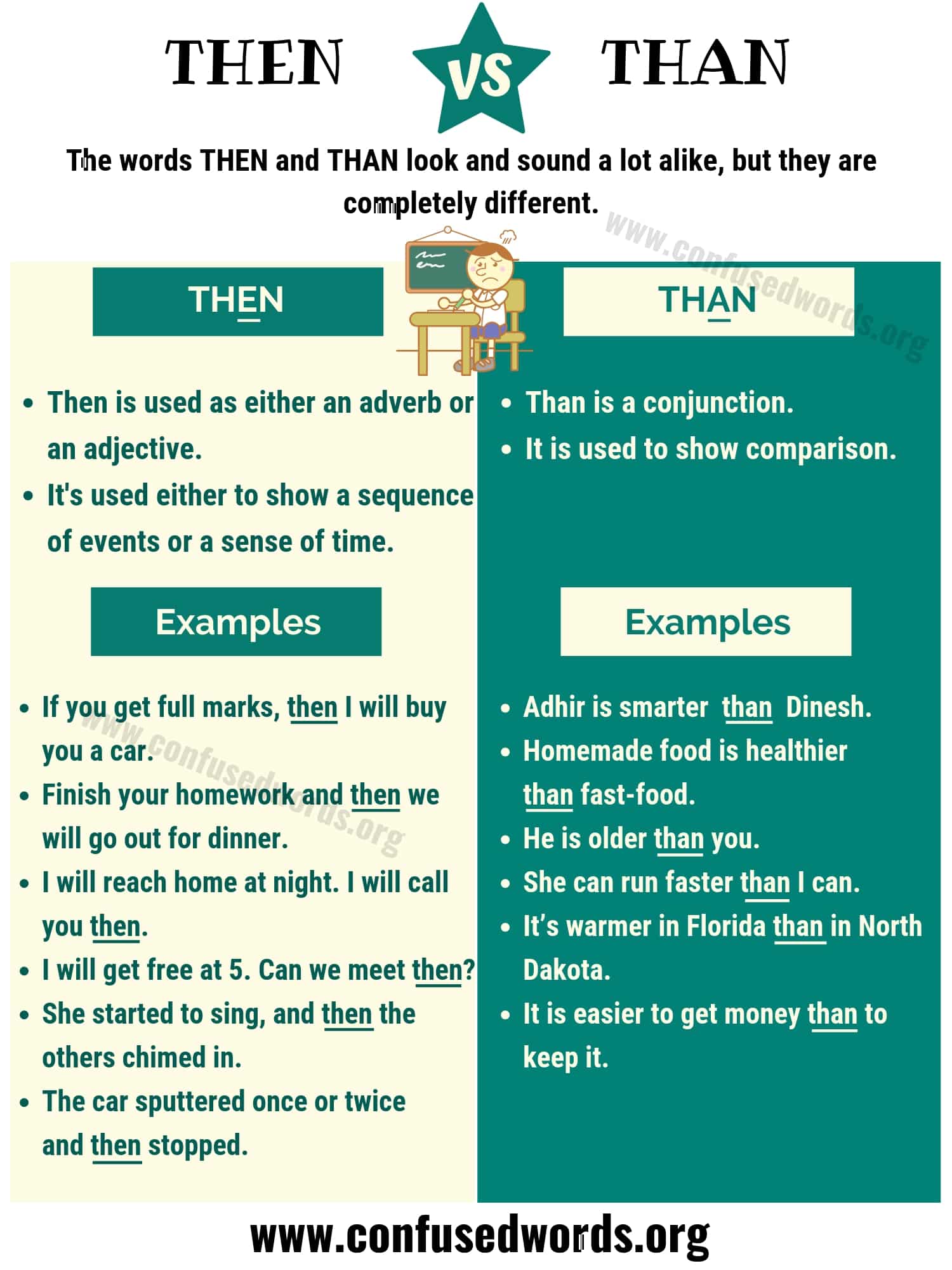
Then vs. Than How to Use Than vs. Then Correctly? Confused Words
The adverb "then" means at that time, in that case, or next, as in: "He laughed and 'then' he cried." This use of "then" orders events in terms of time. A similar use of "then" when placing events in order might be, "I first went to the store, and 'then' I got gas."

How to Use Than and Then Correctly in 2023 AtOnce
Then and than are homophones that sound alike but have different meanings. Then can function as an adjective, adverb, or noun, and indicates time or consequence. Than is a conjunction or preposition used to indicate comparison. Then and than are among the 100 most frequently used words in the English language.
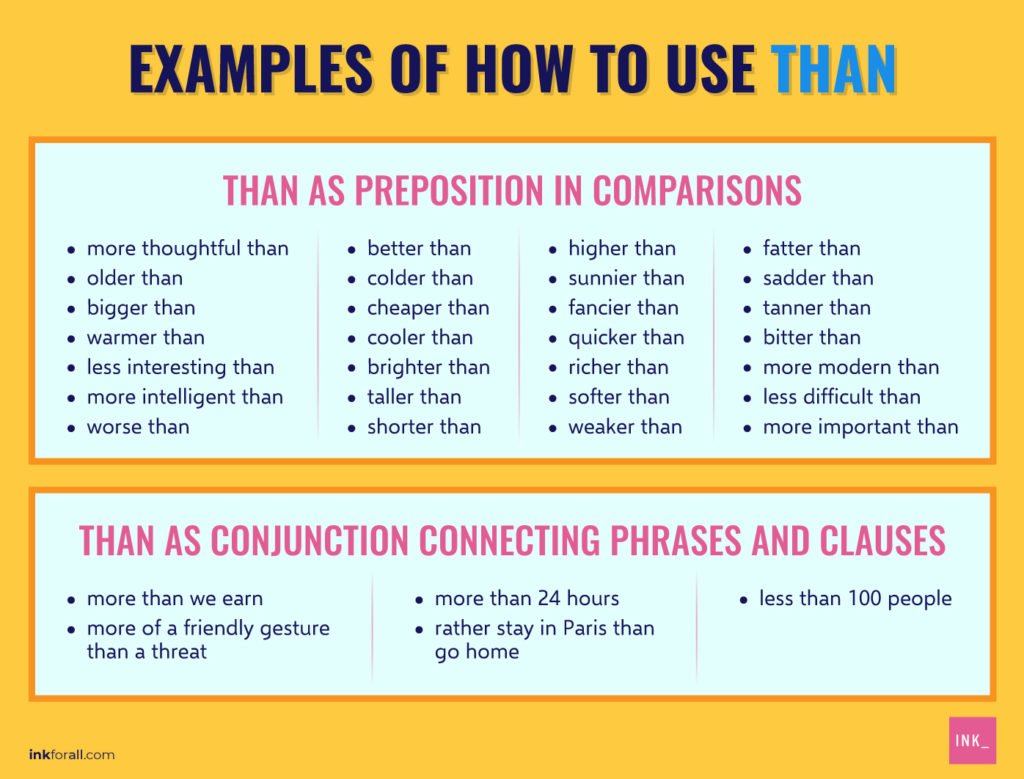
Using then or than in a sentence for each word
The word "than" is used to compare things. Below are some examples of each: I ate breakfast and then I went to work. The party is at 7--I'll see you then! Turn left at the light and then turn right on the next street. If you went to the party then you probably met my friend. I'm taller than my sister. She is older than 35.
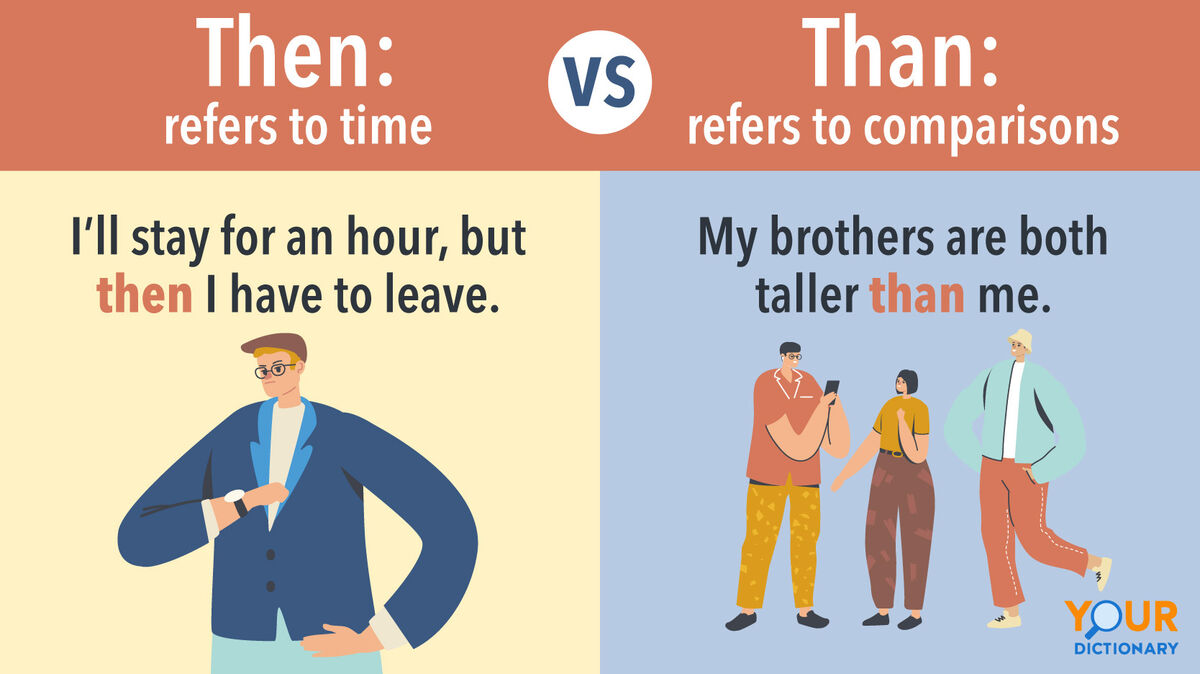
"Then" vs. "Than" When To Use Each Word YourDictionary
Than vs. then: What's the difference? The word than is used for comparisons to show who or what something is compared against. For example,"cats are smarter than dogs." The word then is used to show time, as in "at that time" or "after that happened." For example,"I exercised then took a shower." When to use than

Then vs Than More Then or More Than Rather Then or Rather Than No later Then or Than Other Than
Save this answer. Show activity on this post. "Then". The word 'then' refers to one thing following another in time or causality ("It fell over, then broke") The word 'than' refers to a comparison (usually where the two items are unequal) - for instance, "This big beefburger looks tastier than that limp salad". Share.

Then vs than Gramática inglesa, Cursos de ingles gratis, Gramática
Published on August 8, 2022 by Eoghan Ryan . Revised on March 11, 2023. Then and than are two commonly confused words with different meanings and grammatical roles. Then (pronounced with a short "e" sound) refers to time.

When to Use "Then" vs. "Than" Grammar Lessons YouTube
Then is used to describe an event or subject in relation to time, such as the order of events in a story. In contrast, than is commonly used as a preposition to compare and contrast two subjects in the same sentence. What is the difference between than and then?
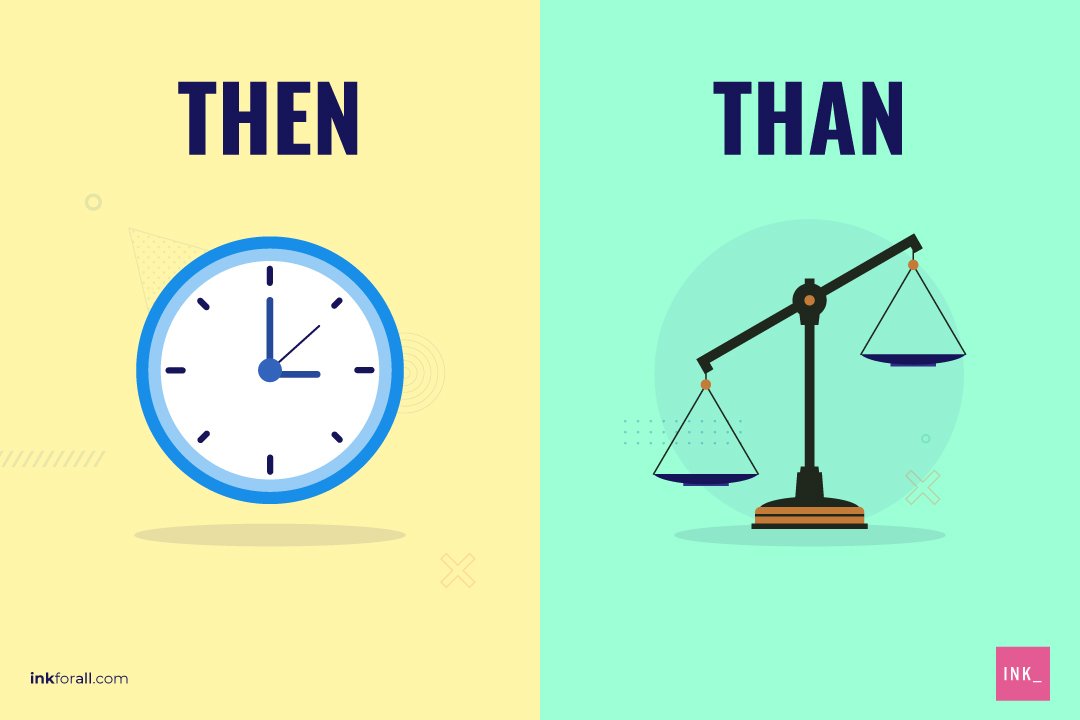
Than vs. Then Difference and How to use Each Correctly INK Blog
When to Use Then Then has a number of different functions, but it is most commonly used as either an adverb or an adjective. Below are a few examples of its many meanings and uses. At that time. I was at work then. Come over this afternoon; I'll be ready then. Next in time, space, or order; immediately afterward.
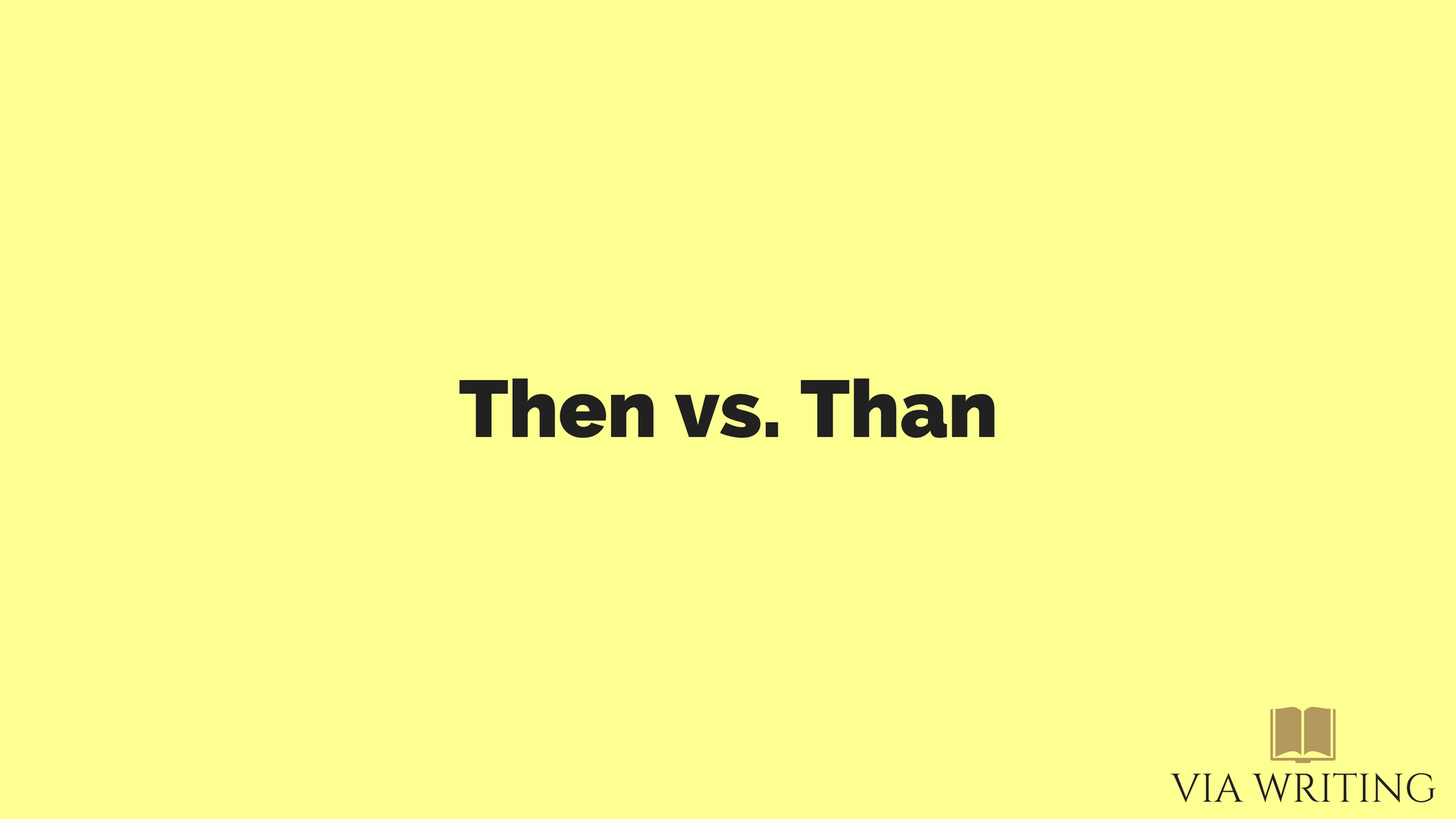
Then vs. Than Via Writing
One of the things adverbs do is tell you when something happened, which is exactly what "then" does. It provides time-based order to events. "Then" can sometimes be used as a noun or as an adjective itself. Than is used most often as a conjunction, which means it connects two clauses within one sentence. It's always used to make a comparison.